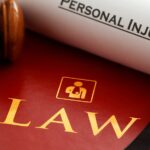Menu list
1. Delaying Medical Treatment
If you’re involved in an accident in Nevada, one of the most important steps you can take is to seek medical attention immediately. Even if your injuries appear minor or you feel fine in the moment, only a qualified healthcare provider can accurately assess your condition and check for underlying or delayed symptoms. Sometimes symptoms may not manifest for hours or even days after the incident, making prompt evaluation critical for your well-being. Working with experienced attorneys, such as blakefriedmanlaw, can also help ensure you understand your rights and take the necessary steps to document your injuries properly. A prompt visit ensures early diagnosis and quicker treatment, which might prevent long-term complications or chronic pain. Additionally, the medical records generated during your visit serve as vital documentation that establishes the injuries were a direct result of the accident.
Delays in medical care not only put your health at risk but also give insurance companies an opportunity to question the link between the accident and your injuries. They may argue that the lapse in time means your injuries were not caused by the accident—potentially jeopardizing your right to compensation. Insurance investigators often look for gaps between the date of your accident and your first medical appointment, treating such delays as red flags about the severity or legitimacy of your injuries.
2. Failing to Gather Evidence
Evidence collection at the scene of an accident is critical. Photographs of your injuries, the environment (e.g., road conditions, hazards, or property damage), and any contributing factors can become persuasive proof in demonstrating liability. This documentation preserves the actual conditions as they were immediately following the incident, before memories fade or the scene changes. Without it, crucial aspects of what happened could be lost or disputed later in the claims process. Recording evidence immediately also helps prevent the responsible party from disputing the facts as they occurred.
Additionally, secure the names and contact information of witnesses, and report the incident to the relevant authorities immediately. Witness testimonies may help corroborate your account, especially if the other party’s version of events conflicts with yours. Official reports made by law enforcement or safety officials often serve as neutral, third-party descriptions that can strengthen your case. The absence of these steps can result in a situation where your account is pitted against the responsible party’s, making it far more challenging to establish fault or the severity of the injury. Thorough evidence strengthens your claim and offers a foundation should legal proceedings become necessary, helping you present a clear, persuasive case if negotiations or a trial become necessary in the future.
3. Sharing Details with Insurance Adjusters
Insurance adjusters are trained to limit payouts. Although they may sound sympathetic, providing too much information can be a pitfall. Anything you say could be recorded and later used to deny or devalue your claim. Adjusters may steer you into saying things that downplay your injuries, suggest you are partly at fault, or imply you are recovering well when you are not. Many adjusters are skilled at building rapport that can make you forget you’re in an adversarial situation.
Adjusters often look for inconsistencies or statements that can minimize liability—for instance, you may inadvertently admit partial fault or downplay your injuries in casual conversation. They may also pressure you into signing statements or medical authorizations that give them access to your entire medical history, which can be used to argue that your injury was due to a pre-existing condition rather than the recent accident. It’s essential to consult with an attorney before providing detailed statements or written accounts. Your legal counsel can act as a buffer, ensuring that your rights and interests are adequately represented throughout the process. An attorney can review any documents before you sign, prepare you for recorded statements, and communicate with the insurance company on your behalf, shielding you from common tactics used to limit your compensation.
4. Posting on Social Media
With social media playing a huge role in daily life, sharing your experience following an accident may seem harmless. However, insurance companies routinely monitor these platforms for any posts, photos, or updates that could undermine your claim. Anything posted online is considered public information and can be used as evidence, even if your profiles are set to private. This means that simple posts about feeling “okay,” photos from a night out, or updates on daily activities can be taken out of context to suggest you are not truly injured or that your activities are inconsistent with your reported limitations.
A seemingly innocent image or comment could be interpreted as evidence that you are not as injured as you claim, even if you are simply trying to stay positive or sharing a moment unrelated to your recovery. Defense attorneys and insurance companies may take screenshots and present them as evidence, even years later. For your protection, avoid discussing any aspect of your accident, injuries, or ongoing case on public forums until your claim is closed. It’s also wise to ask friends and family to avoid posting about you or tagging you in photos during this time, as their posts can also be scrutinized.
5. Settling Too Quickly
The aftermath of an accident may bring mounting medical bills, lost income, and other sudden financial pressures. As a result, it’s common for accident victims to feel tempted to accept the first settlement offer from an insurance company. Insurance companies often capitalize on this vulnerability by offering a swift payout—hoping you will settle before you fully understand the extent of your injuries or financial needs. Accepting this initial offer might provide immediate relief, but it can be a costly mistake in the long run.
However, these initial offers rarely reflect the full scope of your damages—especially if future medical care, rehabilitation, or lost earning potential have not yet been fully accounted for. Once a settlement is accepted, you usually forfeit your right to further compensation, no matter what costs arise later. Many injuries can have lingering effects or complications that don’t become apparent until weeks or months after the incident; by then, it may be too late to claim additional compensation. Consulting a personal injury attorney gives you a clearer understanding of your injuries’ lasting effects and helps ensure that your settlement covers all your present and future needs. Attorneys can help calculate your full damages, negotiate aggressively with insurers, and advise you about potential outcomes, empowering you to make informed decisions rather than rushed ones.
Conclusion
Effective navigation of a personal injury claim in Nevada demands careful consideration of the steps you take in the aftermath of an accident. Avoiding common pitfalls—such as delaying medical treatment, failing to collect evidence, oversharing with insurance, posting on social media, and settling prematurely—will strengthen your claim and improve your chance for meaningful compensation. Each of these mistakes can have a lasting impact and may be difficult to undo, so being proactive and informed is essential. The claims process can be complex, so always consider professional legal advice to support your recovery and protect your rights. An attorney can help guide you through difficult decisions, act as an advocate when negotiating with insurers, and represent your interests if litigation becomes necessary.





